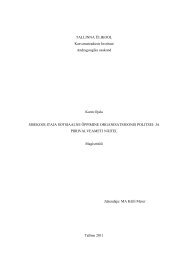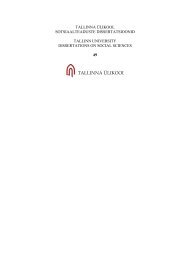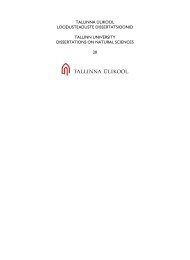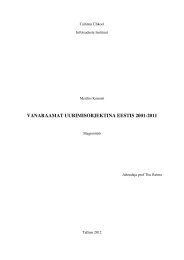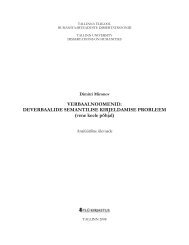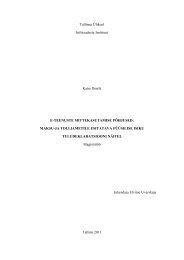Download (1157Kb) - E-Ait
Download (1157Kb) - E-Ait
Download (1157Kb) - E-Ait
Create successful ePaper yourself
Turn your PDF publications into a flip-book with our unique Google optimized e-Paper software.
informal and formal knowledge sharing Tanzania public university libraries are missing. To<br />
successfully reap the benefit of knowledge sharing, public university Libraries need to<br />
promote social events, network building through communities of practice, workshops and<br />
informal meetings.<br />
4.1.2. The implication of formal knowledge sharing in the absence of<br />
informal knowledge sharing.<br />
Formal structures are essential to create more opportunities for accumulating and transferring<br />
knowledge. Solutions for easy and anticipated problems can easily be integrated in the formal<br />
structure intended for knowledge sharing. With the advancement in technology some systems<br />
are designed to carry out automatic updates for some routine activities thus facilitate the<br />
provision of updated knowledge for decision making. However, even with the<br />
implementation of these structures, it should be very clear that this is one step forward and<br />
using them to input knowledge which will eventually add value to the organisation is more<br />
critical and complex. Care needs to be taken to offset some social factors and to enhance<br />
employee skills with the aims of implementing these structures and finding out how to<br />
optimise them to achieve better results. (Bhatt, 2002) suggests that even with the presence of<br />
formal structures, employees tend to form their own informal networks where they can get<br />
necessary knowledge.<br />
Formal practices of knowledge sharing are promoted by rewards. Lack of motivation to share<br />
knowledge among staff may be the result in the absence of systems designed to reward<br />
knowledge sharing. Six out of 21 respondents (29%) suggested that knowledge sharing is<br />
recognised, eight respondents (38%) suggested promotion as a reward, while only two (10%)<br />
suggested financial benefit. Data suggest that even the rewards suggested may not be<br />
officially in place as there was no consistency in response from any university as to what kind<br />
of rewards were in place. If they were laid down in such things as policies or codes of<br />
conduct it is likely there would be some consistency. However, the design of reward systems<br />
is indeed a challenge. This is partly due to the fact that employee satisfaction may not only<br />
depend on financial benefits but rather also with many other factors such as being<br />
intellectually acknowledged and recognised. If there is no way to make employees perceive<br />
knowledge creation and sharing as part of their recognised job, then even a lot of efforts to<br />
encourage them to share may achieve negative results.<br />
38





